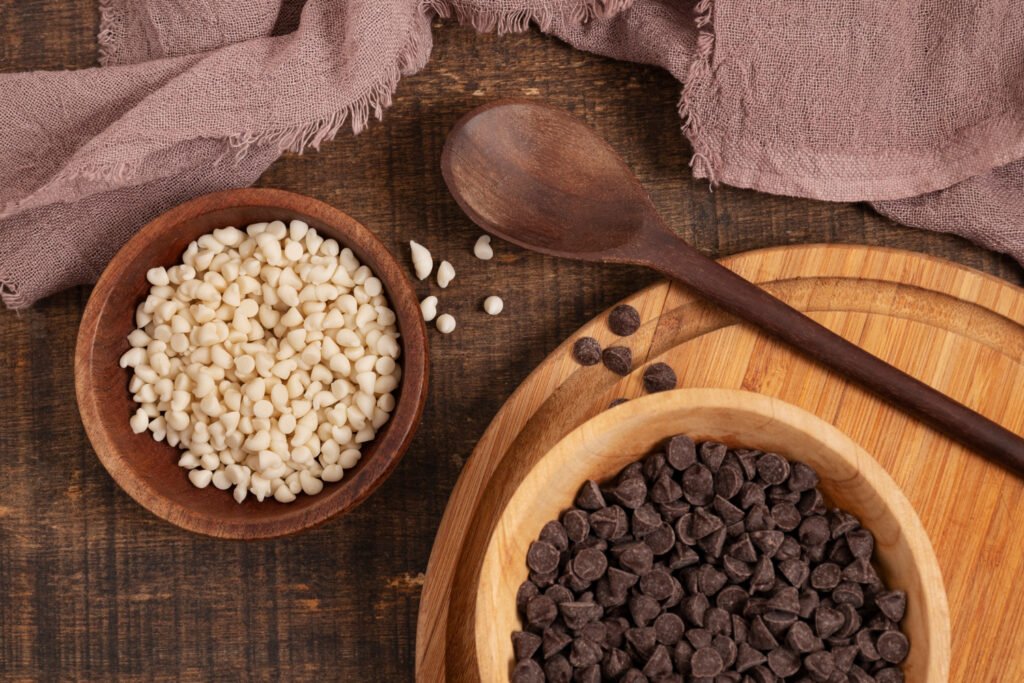
Table of Contents
Overview
Beans have long been hailed as a nutritional powerhouse, offering a variety of health benefits while being an affordable and versatile staple in many diets. Among the most popular varieties are black beans and pinto beans. These two types of legumes are often found in various dishes, from hearty soups to flavorful burritos, and both offer an impressive array of nutrients. But the question remains: when it comes to health benefits, which is the better option—black beans or pinto beans? Let’s break down their differences and help you decide which might be the healthier choice for you.
Black Beans vs. Pinto Beans
Both black beans and pinto beans provide a rich source of protein, fiber, and essential vitamins and minerals, but there are subtle differences between them.
Calories and Macronutrients
- Black Beans: A one-cup serving of cooked black beans contains around 227 calories, with 15 grams of protein, 15 grams of fiber, and less than 1 gram of fat. These beans are ideal for those looking to increase their protein and fiber intake without adding too many extra calories to their diet.
- Pinto Beans: Pinto beans, on the other hand, are slightly higher in calories, with one cup of cooked pinto beans offering around 245 calories. Like black beans, pinto beans contain about 15 grams of protein and 15 grams of fiber, with just a bit more fat at 1.1 grams.
In terms of macronutrient content, black beans and pinto beans are nearly identical, but if you’re counting calories, black beans might be the better option by a small margin.
Vitamins and Minerals
When it comes to micronutrients, black beans and pinto beans both offer a variety of vitamins and minerals that contribute to overall health.
- Black Beans: Black beans are an excellent source of magnesium, iron, and folate. They also contain a higher amount of potassium than pinto beans, which is important for regulating blood pressure and supporting heart health.
- Pinto Beans: Pinto beans shine when it comes to their content of thiamine (vitamin B1) and manganese. Thiamine plays a key role in energy metabolism and nerve function, while manganese supports bone health and antioxidant defenses.
While both beans are packed with important nutrients, the higher potassium content in black beans gives them an edge in terms of supporting heart health.
Antioxidants
- Black Beans: One of the most notable aspects of black beans is their high antioxidant content. Their dark color comes from anthocyanins, which are powerful antioxidants that have been linked to a reduced risk of chronic diseases like heart disease and cancer.
- Pinto Beans: While pinto beans also contain antioxidants, they have fewer compared to black beans. However, pinto beans do contain kaempferol, a flavonoid known for its anti-inflammatory and anti-cancer properties.
For those looking to maximize their antioxidant intake, black beans are the clear winner.
Health Benefits
Both black and pinto beans contribute to several key areas of health, thanks to their rich nutrient profiles.
1. Digestive Health
Both black and pinto beans are packed with dietary fiber, which is essential for maintaining a healthy digestive system. The high fiber content in these beans helps regulate bowel movements, prevent constipation, and support gut health by feeding beneficial gut bacteria. Fiber also helps with weight management by keeping you full longer, which can help reduce overall calorie intake.
2. Heart Health
Related: everyday habits that harm your heart health
Beans are well-known for their ability to support heart health, and both black and pinto beans are no exception. The fiber, magnesium, and potassium found in these beans work together to help lower cholesterol levels and regulate blood pressure, reducing the risk of heart disease. Black beans, with their higher antioxidant content, may offer extra protection against oxidative stress, which is a key factor in heart disease development.
3. Blood Sugar Control
Related: How to Lower Blood Pressure Naturally Through Diet
For individuals looking to manage their blood sugar levels, both black beans and pinto beans are excellent choices. Their high fiber content slows down the absorption of sugar into the bloodstream, preventing blood sugar spikes. This makes both beans a great option for those with diabetes or anyone looking to maintain balanced blood sugar levels.
4. Bone Health
Related: best super foods for bone health
Magnesium and other minerals found in both black and pinto beans play a vital role in bone health. Magnesium helps the body absorb calcium, which is crucial for maintaining strong bones and preventing conditions like osteoporosis. Since black beans contain more potassium than pinto beans, they might be slightly better for preventing calcium loss from bones.
Taste and Culinary Uses
While their nutritional profiles are similar, the flavor and texture of black beans and pinto beans are quite different, which can influence your decision depending on the type of dish you’re preparing.
- Black Beans: Black beans have a dense, meaty texture and a slightly earthy flavor. They are commonly used in Latin American and Caribbean dishes and work well in soups, salads, and rice dishes. Their hearty texture also makes them a popular choice for vegetarian dishes like black bean burgers.
- Pinto Beans: Pinto beans are known for their creamy texture and mild, nutty flavor. They are commonly used in Mexican cuisine, particularly in refried beans and chili. Pinto beans are excellent for mashing, making them a go-to for burritos and enchiladas.
Environmental Impact
One aspect that makes both black beans and pinto beans standout choices is their relatively low environmental impact compared to animal-based protein sources. As legumes, these beans are nitrogen-fixing plants, meaning they help enrich the soil by adding nitrogen back into it. This reduces the need for chemical fertilizers, making beans a sustainable option for environmentally-conscious eaters.
Which Bean Should You Choose?
So, which bean is healthier—black beans or pinto beans? The answer depends largely on your individual nutritional needs and personal taste preferences.
- Choose Black Beans If: You’re looking to increase your antioxidant intake, especially to support heart health, or you prefer a denser, meatier texture in your dishes. Black beans are also slightly lower in calories, making them a good choice for those looking to reduce their caloric intake.
- Choose Pinto Beans If: You enjoy a creamier texture and prefer using beans in traditional Mexican dishes like refried beans or chili. If you’re looking to boost your intake of thiamine and manganese, pinto beans are the better option.
The Takeaway
Both black beans and pinto beans are nutritional powerhouses, offering a range of health benefits from supporting heart health to improving digestion and managing blood sugar. Incorporating both into your diet can provide you with a diverse range of flavors and nutrients. Whether you’re preparing a spicy chili or a fresh salad, you really can’t go wrong with either option.
In the end, the best approach might be to enjoy the unique benefits of both black beans and pinto beans. By rotating between the two or mixing them together in your recipes, you can ensure you’re getting the best of both worlds—taste and nutrition
Frequently Asked Questions
- Which bean has more protein, black beans or pinto beans?
Both black beans and pinto beans contain about the same amount of protein, offering around 15 grams per cooked cup. This makes them both excellent sources of plant-based protein for those looking to boost their intake. - Are black beans or pinto beans better for heart health?
Both beans support heart health, but black beans have an edge due to their higher antioxidant content, particularly anthocyanins. However, pinto beans also contain nutrients like fiber, potassium, and magnesium that promote heart health. - Can black beans or pinto beans help with blood sugar control?
Yes, both black and pinto beans are high in fiber, which helps slow down sugar absorption and prevents blood sugar spikes. They are both great options for individuals managing diabetes or aiming to maintain balanced blood sugar levels.











